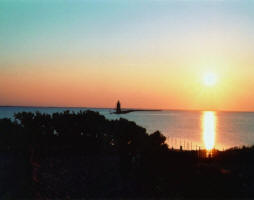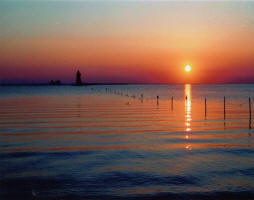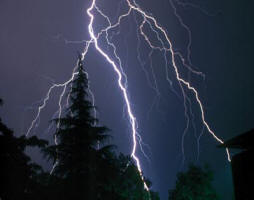 Jordan, Palestine, Egypt: How process documentation made a difference
Jordan, Palestine, Egypt: How process documentation made a difference
The last issue of Source Bulletin 52 [http://www.irc.nl/url/26798] announced the publications of five titles in English and Arabic documenting the results of the Euro-Med Participatory Water Resources Scenarios
(EMPOWERS) research and development project (2003-2007). The following extracts from two of these titles illustrate how process documentation made a difference; not only within the team and for stakeholders involved in the project, but in the wider water situation in the three countries where EMPOWERS was working.
“Did the process documentation in EMPOWERS make a difference? Yes, for internal learning it has been very important. Why? Because it helped to reflect immediately on what was going on in the project. You do not wait
for two years to look back and reflect, but you do it while you are implementing. You are continuously searching for causes. You are continuously trying to understand what exactly is going on. Technical implementation teams do not normally do that. Process documentation made reflection an explicit and continuous activity in EMPOWERS. It made learning more mature. Because we did it as a team, it also contributed to the team building, to having common ground. And yes, it did encourage debate in the country. Our reports did, our newsletters and stories did and the film did. They showed the missing link between communities and governorates. They showed that local solutions contribute to solving national problems. They also showed that there are lots of projects, but no coordination. In the governorate they do not know what is going on, because
projects are still implemented through the national line ministries, and this lack of coordination is replicated at governorate level. These are issues that have come onto the agenda. This was not only because of process
documentation, but documentation certainly helped to grab attention for the causes of water problems. Because of that, it was good that process documentation, as well as direct project implementation, was a part of the EMPOWERS project.”
Rania Al-Zoubi, Jordan, in: The Inside Story: Process Documentation - Experiences from EMPOWERS, p 31, http://www.project.empowers.info/page/3287
Process documentation in EMPOWERS generated a range of outputs:
* a story book “Doings Things Differently”;
* three documentary films on water governance produced by local filmmakers in Egypt, Jordan and Palestine;
* one compilation film “Nor Any Drop to Drink”;
* other titles that detailed the approaches, methodologies and tools that made EMPOWERS work in Egypt, Jordan and Palestine.
There were also case studies, interviews and stories published in EMPOWERS newsletters and in magazines. All these outputs are described on the EMPOWERS website http://www.empowers.info/
Since the EMPOWERS project came to a close in August 2007, the website, outputs and future activities to advocate improved governance of water resources and water services are managed by the EMPOWERS Thematic Group (ETG), the same partnership of international and local organisations that implemented the EMPOWERS project.
What makes a good process documentation specialist?
“As the process documentation specialist (PDS) in Palestine, I was stationed in the Jenin office of CARE West Bank Gaza. I am an agronomist with a Masters degree in environmental sciences. I have worked in the
University and the Ministry of Agriculture and have some experience in development work with local NGOs and UNDP. My tasks as a process documentation specialist included:
* Accompanying the project team in its daily work in the field anddocumenting observations, asking a number of key questions: How is cooperation within the EMPOWERS team itself? Are team members convinced about the approach? What are their doubts? Is there real team work or is anyone marginalising the role of the other? These observations were discussed during team meetings.
* In meetings with the local community, I took notes and I recorded the degree of diversity there was amongst those attending in terms of attitudes, gender, and family representation. My task was to: listen to
the debate and document who participated and who did not; see if there were changes in the ideas and convictions of community people; track where there was communal action and what was done merely for
somebody’s personal interest.
* Keeping a diary with observations and reflections.
* Processing the collected information:
* Publising a range of outputs and communication channels such as a newsletter, case studies, posters, short video films, articles and the website; to be used in the planning cycle of the project, in particular information about social, economic and cultural aspects in the community and the roles of the different stakeholders involved in water management.
* Providing an input into the team reflection meetings.”
Buthaina Mizyed, Palestine, in: The Inside Story: Process Documentation - Experiences from EMPOWERS, p 27.
| Contact information |
Cor Dietvorst, IRC International Water and Sanitation Centre, The Netherlands/ Special features editor: Dick de Jong
(email: dietvorst@irc.nl ; jong@irc.nl) |
|---|---|
| News type | Inbrief |
| File link |
http://www.project.empowers.info/page/3287 |
| Source of information | Source-weekly mailing list |
| Keyword(s) | EU-MEDA-Water, EMPOWERS |
| Subject(s) | POLICY-WATER POLICY AND WATER MANAGEMENT |
| Relation | http://www.semide.net/initiatives/medaeau/fol719001/fol199548 |
| Geographical coverage | Jordan, Palestine, Egypt |
| News date | 14/08/2008 |
| Working language(s) | ENGLISH |
 you are not logged in
you are not logged in





